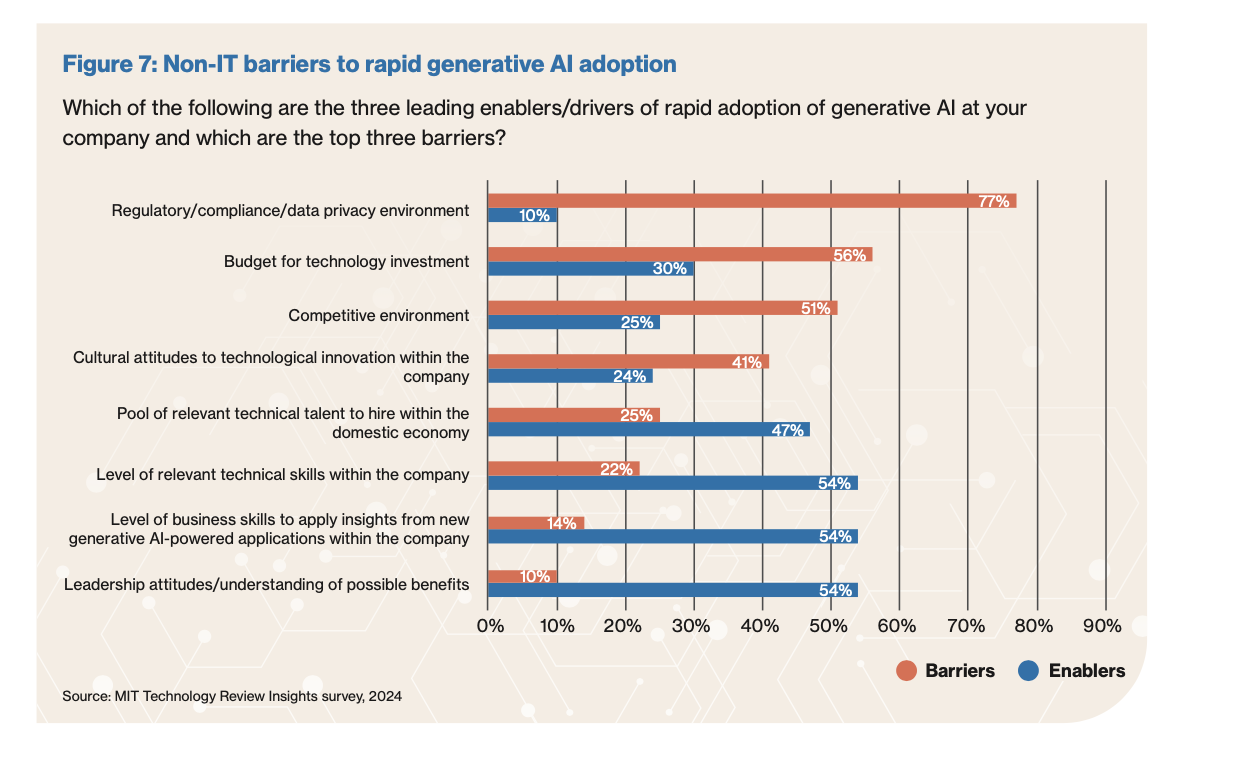Artificial intelligence (AI) enhanced development is the next movement in software development, following on the heels of DevOps/Cloud and Agile. The promise of AI to software engineers is undeniably appealing. Yet, the journey towards full AI integration in the enterprise has challenges ahead. Recent product launches have ignited a broader conversation on the practical application of AI within complex enterprise environments. Let’s break down the challenges.
Where we are and where we are going
Sure, building a new app “from scratch” is an excellent way to demo the potential of AI in the software development workflow, as shown by Microsoft’s Copilot and others. But most developers are not building new apps from scratch. In fact, they are dealing with poorly documented, fragile legacy apps that power some of the largest enterprises and most core industries in the world. Jean Yang called these developers the 99%. And the AI illuminati are ignoring them.
Integrating AI into established enterprise development workflows is no small feat. Many organizations operate within rigid frameworks built over years, incorporating legacy systems that are not easily adaptable to new technologies. This complexity demands a careful, strategic approach to integration, ensuring that AI tools complement rather than disrupt existing processes. And they face challenges that are not being addressed.
Data Privacy and Security: The top of everyone’s list of concerns
The efficacy of AI in development for large heritage codebases is largely contingent upon its access to extensive sensitive databases, sensitive codebases, runtime data, and more to provide the needed context to inform generative coding. This is the same data software engineers and architects use on a daily basis to inform their work. For enterprises, this presents a significant concern regarding data privacy and security of sending these data to the LLM. The handling of sensitive and proprietary information by AI tools necessitates robust security measures to prevent data breaches and ensure compliance with regulations. Perhaps more importantly-using intermediate processes to MINIMIZE the amount of data required by AI tools to provide insights is an often overlooked approach, would benefit enterprise adoption.
Scalability and Performance: The problem just around the corner
AI tools must not only accommodate the vast scale of enterprise operations but do so efficiently. Enterprises often deal with larger, more complex codebases and systems, pushing the limits of AI scalability and performance. Ensuring that these tools can deliver timely, accurate insights without hindering development speed is crucial. Having used AI coding assistants myself, the indexing of the codebase to update generative coding assistants with static code context alone cripples CPU in local or hosted dev environments.
More data (or more loops) is not better, better domain context is better
Recent chatter online has brought these issues into sharp relief. What is the practical utility of AI for development in real-world enterprise settings? The gap between the hyped benefits of AI-driven development aids and their actual performance and relevance in complex software projects remain.
AppMap’s Navie: Bridging the Gap
At AppMap, we’ve taken a novel approach that we feel addresses many of these concerns. Navie distinguishes itself by leveraging deep observability data— such as API calls, sequence diagrams, and performance metrics — to provide AI-powered insights that are contextualized within the enterprise’s specific development landscape.
By collecting and indexing its own observability data in a developer’s local coding environment, Navie is able to synthesize and analyze runtime data and integrate it into the AI context. This enables Navie to offer recommendations and architectural suggestions not only quickly, but cost effectively. Navie’s insights are not only technically sound but also aligned with the enterprise’s unique codebase and system architecture. And by collecting and managing observability data locally Navie is ideally suited to address not only scalability and performance concerns, but also mitigates data privacy concerns by operating within the secure confines of the enterprise’s environment.
For enterprises, the ability to support and swap between multiple AI Large Language Model (LLM) backends is another “must-have” requirement. Enterprises are still exploring the strategic approach to adopting LLMs, much like the early days of cloud adoption where “multi-cloud” balanced risk and benefit across providers. Navie’s AI-agnostic architecture allows organizations to tailor their AI-driven development tools to their specific needs by choosing from various AI models that best fit their operational requirements and objectives. Also, this approach also minimizes the data exchange with the AI backend. Such flexibility not only enhances the relevance and effectiveness of AI-powered insights and code suggestions but also offers enterprises the opportunity to optimize for cost, performance, and data privacy. By enabling a customizable AI experience, Navie empowers enterprises to harness the full potential of AI in their development workflows, ensuring that their investment in AI technology is aligned with their strategic goals and delivers maximum value.
Steady progress, just like the evolutions before transformations.
The path to fully integrating AI into enterprise software development is complex and fraught with challenges. But, not unlike the migration to cloud, devops, and agile before, the slow and steady wins (rather than the hype) will transform the industry. Tools built not to disrupt, but to shepherd real businesses to the promised land will win. Practical advances, like AppMap’s Navie, offer a glimpse into what is achievable in the near term for enterprises who want to move beyond code completion to comprehensive AI-enabled coding.
By providing AI-driven insights rooted in a deep understanding of the enterprise’s specific coding and system environment, AI will not just augment but transform enterprise development workflows. As the industry continues to navigate these challenges, the lessons learned from critiques and successes alike will shape the trajectory of AI in software development, promising a more efficient, insightful, and adaptable future.
For a hands-on experience with AppMap Navie install AppMap for Visual Studio Code or JetBrains code editors.
For all other requests complete this form and an AppMap representative will get right back to you. Alternatively, feel free to email sales@appmap.io, or call us at +1 617-237-0527.

